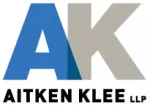In Pollard Banknote Limited v. Babn Technologies Corp. and Scientific Games Products (Canada) ULC (2016 FC 1193), Justice Locke dealt with the issue of costs following his finding that the claims of Canadian Patent No. 2,752,551 were invalid or, in the alternative, not infringed. In his Judgment, Justice Locke provided that should the parties be unable to agree on costs, they were to provide written submissions of no more than 15 pages.
The parties could not agree on costs and both parties provided written submissions to the Court.
Pollard sought a lump sum award of $1,348,315.00 representing 50% of its legal fees and 100% of its disbursements, noting that costs calculated using Tariff B of the Federal Court Rules would entitle Pollard to recover only 17-22 % of its actual legal spend. In support of its submission, Pollard referred to a "trend in recent caselaw favouring the award of a lump sum based on a percentage of the actual costs to the party when dealing with sophisticated commercial litigants that clearly have the means to pay for the legal choices they make".
Scientific Games argued that the default costs award under Column III of Tariff B as contemplated in Rule 407 should apply and that elevated costs were not warranted. Citing Wihksne, Scientific Games further argued that if recovery of costs under Tariff B is inadequate, the remedy is not to ignore the Tariff, but for the Governor-in-Council to amend the Rules.
Justice Locke held that although there were grounds on which an award of elevated costs was justified, Scientific Games' conduct was not so reprehensible as to justify a lump sum award of costs at the level sought by Pollard, holding :
[36] I have considered Pollard's argument that costs should be awarded as a lump sum based on its actual legal expenses, but I am not convinced that an award of costs based on Tariff B will be inadequate. However, because of my concerns with SG's conduct during this case, I conclude that the fees portion of costs should be elevated by 50% above what is contemplated in the previous paragraph. As discussed above, I am particularly concerned about (i) SG's standard of review argument, (ii) the manner in which SG dealt with Mr. Finnerty's testimony, and (iii) SG's argument for a claim construction that defers to the Patent Office's decision to allow the 551 Patent to issue, and simultaneously ignores its submission during prosecution that led to that decision.
Justice Locke further awarded Pollard $2500 for the costs submissions, noting that Scientific Games' single-spaced, 10-point font submissions did not comply with the Federal Court Rules, effectively allowing Scientific Games to exceed the 15 page limit for its submissions:
[7] Before continuing, I must note that SG's submissions do not appear to comply with the Rules. They appear to use a 10-point font (rather than the 12-point font required by Rule 65) and to be single-spaced (thus exceeding the limit of 30 lines per page exclusive of headings). The result of SG's failure to comply with the Rules is that its 15-page submissions total 116 paragraphs versus 47 paragraphs for Pollard's submissions in chief. SG has effectively exceeded the page limit for costs submissions more than two-fold without seeking leave to do so. I have reviewed and considered SG's costs submissions in their entirety, and I will reflect SG's disrespect for the Rules in awarding costs related to this assessment.
A copy of the decision may be found here.
The content of this article is intended to provide a general guide to the subject matter. Specialist advice should be sought about your specific circumstances.

